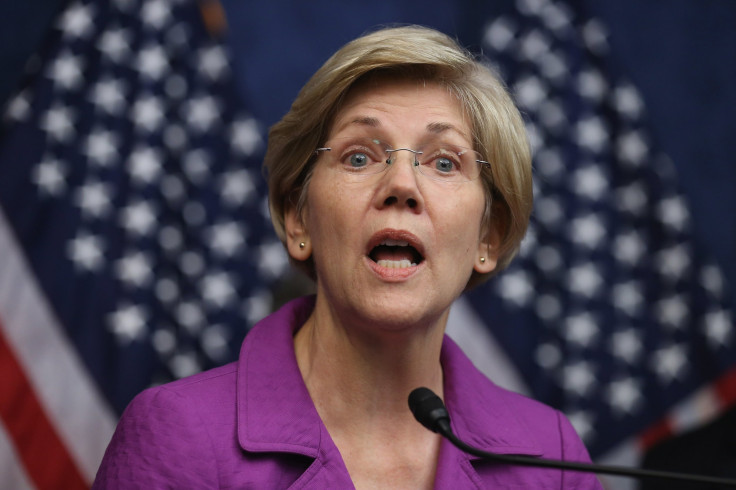Elizabeth Warren Says Federal Rules Are Being Unduly Influenced By Corporate Interests

When a bill is signed into law, that’s not where the legal process ends: Typically, federal agencies then must design myriad rules for its implementation, and do so in consultation with the American people via input from the public comment period. But that’s not how it is working in practice. According to data compiled by a high-profile lawmaker, federal agencies are almost exclusively consulting with corporate interests to design the rules — and in many cases, that means they end up weakened or gutted.
In a Thursday speech to the Administrative Conference of the United States in Washington, D.C., outlining her findings, Sen. Elizabeth Warren, D-Mass., documented how “giant corporations and their lobbyists devote enormous resources to influencing agency rulemaking, and it pays off handsomely.”
In recent months, Warren’s fellow Democrats have illustrated the intensity of those campaigns to undermine rules and regulations long after legislation has been passed: Democratic National Committee chairwoman Debbie Wasserman-Schultz is co-sponsoring a bill to halt payday lending rules, and various Democratic lawmakers are attempting to weaken Dodd-Frank banking regulations and stymie federal rules designed to protect consumers from being bilked by investment advisers.
In her speech, though, Warren pointed out that attempts to undermine such rules go way beyond the more public legislative arena.
“When it comes to undue industry influence, our rulemaking process is broken from start to finish,” Warren told the audience at a government-sponsored conference looking at how corporations influence the regulatory process. “At every stage — from the months before a rule is proposed to the final decision of a court hearing a challenge to that rule — the existing process is loaded with opportunities for powerful industry groups to tilt the scales in their favor.”
As evidence, she cited a trio of studies spotlighting just how much business interests dominate the arcane rulemaking process:
— A 2011 review of the process surrounding the Environmental Protection Agency’s toxic emissions standards found that business interests provided more than three-quarters of all the public comments designed to shape the final rules. The data compiled by researchers at the University of Texas, University of Arizona and Case Western Reserve also found that changes made after the comment period “favored industry by a factor of 4 to 1 as compared with the changes benefitting the public interest.”
— A 2012 study from University of Maryland law professor Rena Steinzor looked at a nearly a decade’s worth of reviews of rules and regulations by the key federal office reviewing such matters. The study found that “65 percent of the attendees at these meetings represented industry, about five times the number of people who appeared on behalf of public interest groups.”
— A 2013 study by Duke University researchers found that when it came to Dodd-Frank rules to crack down on banks’ risky behavior, “Financial institutions, financial industry trade groups, and law firms representing such institutions and trade groups collectively accounted for roughly 93 percent of all” contacts with federal regulators. Only roughly 7 percent of federal regulators’ meetings about the so-called Volcker Rule were with “public interest, labor, advocacy and research groups” and other nonindustry groups.
Warren’s speech did not just spotlight the rulemaking trend — she also proposed what she said are public policy fixes that would begin remedying the problem. She called for more disclosure detailing who regulators are meeting with; efforts to simplify rules so that they are easier for the public to understand and lobby on; and legislation to prevent corporations from paying big bonuses to their employees for entering government, where they can influence regulatory proceedings.
© Copyright IBTimes 2024. All rights reserved.












